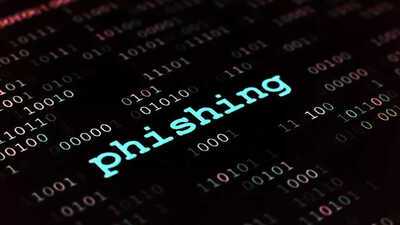The Government of India has issued a serious warning regarding a new phishing scam that falsely promises users an upgraded “PAN 2.0” card. This scam, circulated through fraudulent emails, is designed to steal sensitive personal and financial details from unsuspecting citizens. According to the Press Information Bureau’s (PIB) Fact Check unit and the Income Tax Department , these emails are completely fake and have no link to official government services. With cybercriminals increasingly targeting individuals during the tax-filing season, citizens are urged to stay vigilant and avoid falling prey to these malicious attempts.
The warning comes at a time when more citizens are filing taxes online and using digital services for financial transactions. Cybercriminals are exploiting trust in government communications to target individuals. In an age where digital fraud is on the rise, awareness and caution are the strongest defence.
What is the PAN 2.0 scam ?
According to Bloomberg reports, the phishing emails are sent from suspicious email addresses such as info@smt.plusoasis.com with subject lines like “Get Your PAN 2.0 Card.” These emails contain links that appear to be from government portals but actually redirect users to fraudulent websites.
The fake site requests sensitive information such as PAN number, Aadhaar details, bank account credentials, and other personal data. Once entered, this data can be used for identity theft, financial fraud, or unauthorized transactions. This deceptive strategy leverages the official look of government communications to trick users into believing it is legitimate.
PIB and Income Tax Department official response on PAN 2.0 scam alert
The PIB Fact Check unit flagged these emails on social media with an urgent warning:
“Scam alert!! Have you received an email asking you to click on a link to download your e-PAN Card? … This email is #Fake.”
Similarly, the Income Tax Department clarified that it never sends unsolicited messages requesting personal details or account numbers. It stressed that genuine PAN services are only available on official websites ending with .gov.in or .nic.in.

Steps to stay safe from the PAN 2.0 scam or any phishing scams

With phishing attacks becoming increasingly sophisticated, taking proactive safety measures is essential. Follow these steps to protect yourself:
Also Read | Someone created a fake Instagram profile of you? Here’s what to do, how to report, prevent, and stay safe
The warning comes at a time when more citizens are filing taxes online and using digital services for financial transactions. Cybercriminals are exploiting trust in government communications to target individuals. In an age where digital fraud is on the rise, awareness and caution are the strongest defence.
What is the PAN 2.0 scam ?
According to Bloomberg reports, the phishing emails are sent from suspicious email addresses such as info@smt.plusoasis.com with subject lines like “Get Your PAN 2.0 Card.” These emails contain links that appear to be from government portals but actually redirect users to fraudulent websites.
The fake site requests sensitive information such as PAN number, Aadhaar details, bank account credentials, and other personal data. Once entered, this data can be used for identity theft, financial fraud, or unauthorized transactions. This deceptive strategy leverages the official look of government communications to trick users into believing it is legitimate.
PIB and Income Tax Department official response on PAN 2.0 scam alert
The PIB Fact Check unit flagged these emails on social media with an urgent warning:
“Scam alert!! Have you received an email asking you to click on a link to download your e-PAN Card? … This email is #Fake.”
Similarly, the Income Tax Department clarified that it never sends unsolicited messages requesting personal details or account numbers. It stressed that genuine PAN services are only available on official websites ending with .gov.in or .nic.in.

Steps to stay safe from the PAN 2.0 scam or any phishing scams
With phishing attacks becoming increasingly sophisticated, taking proactive safety measures is essential. Follow these steps to protect yourself:
- Verify the sender’s email address
- Avoid clicking suspicious links
- Use official portals only
- Enable two-factor authentication
- Report suspicious emails immediately
- Stay informed and updated
Also Read | Someone created a fake Instagram profile of you? Here’s what to do, how to report, prevent, and stay safe
You may also like

Brits who smuggled Angel Delight drugs into Bali to spend just 6 months in jail

Disturbing sex assault hidden truth revealed in latest crime figures

LOYA QISSA x THE AUBREY, HONG KONG

New way to earn from agriculture, do an Agribusiness Management Diploma.

IND vs ENG, 4th Test: Can Dhruv Jurel Bat At Old Trafford With Rishabh Pant Ruled Out Of Remainder Of Series?






